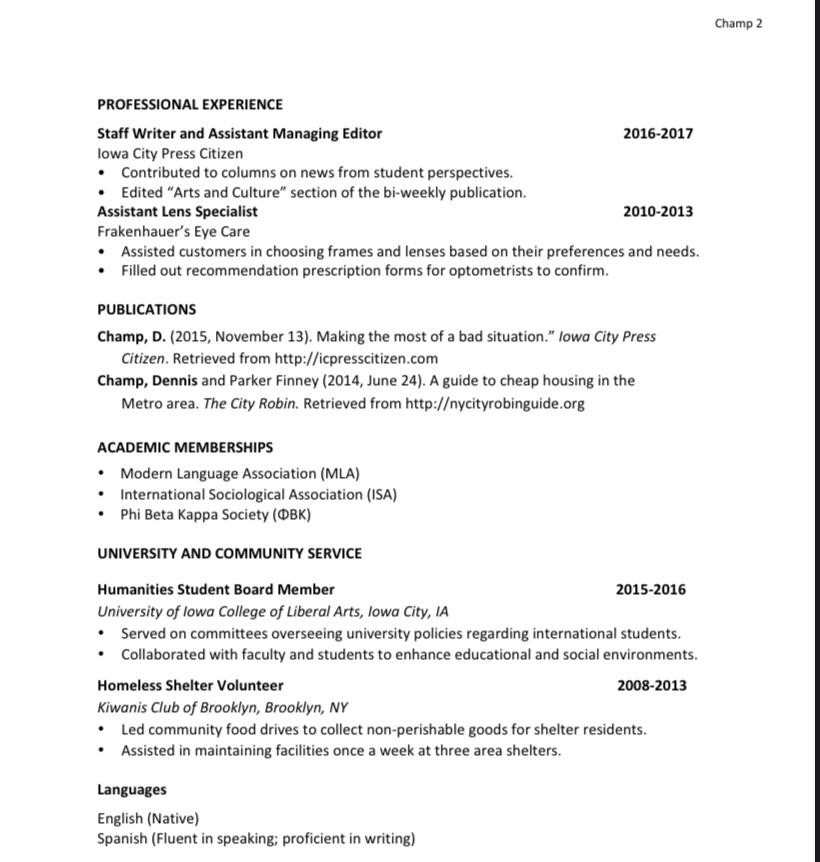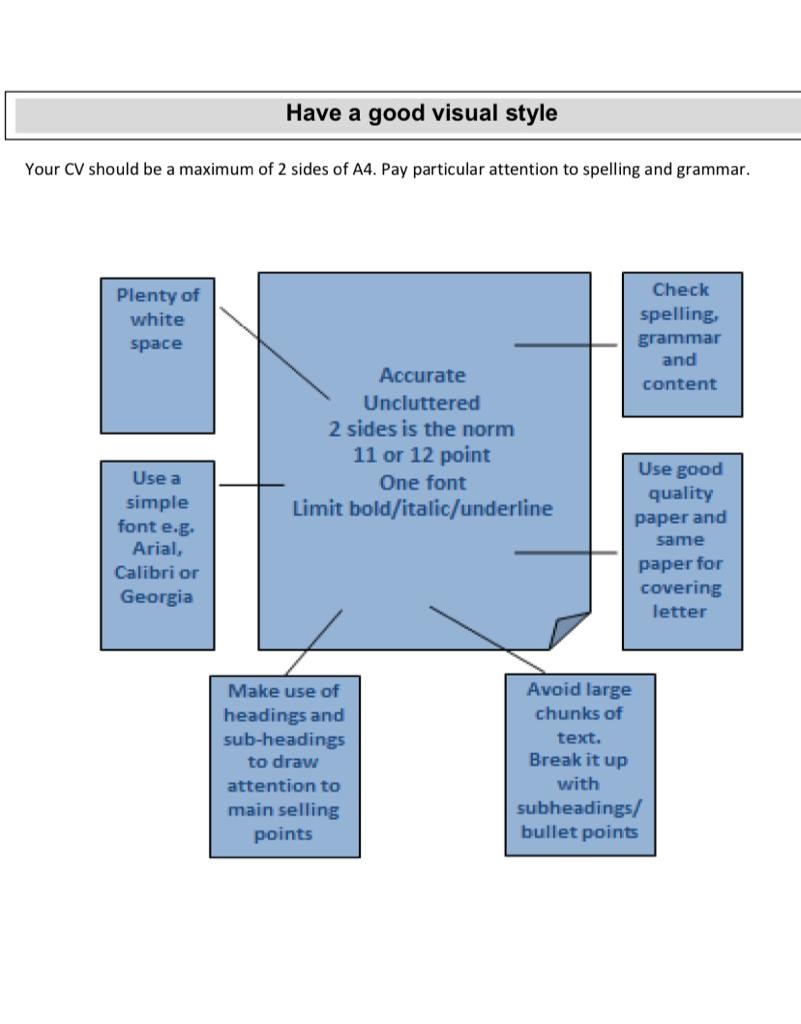A Curriculum Vitae or commonly known as CV is a comprehensive document that highlights a student’s academic or professional background/history. It includes information revolving around your educational achievements, awards, courses you might’ve studied over the years, any research you’ve conducted, internship opportunities etc. It becomes very important for a student to keep and maintain a detailed and accurate CV.
While, many people use CV and a resume interchangeably, these two are not the same. Like mentioned above, CV is a detailed document and on the other hand a resume is generally a one-page long document. A resume is used for job applications in which one describes and highlights their skills and work experience relevant to that job. A CV lists out the entire course of the student’s academic career in a chronological order.
CV AS AN UNDERGRADUATE STUDENT
Before starting with your CV make sure to make each section big and bold with appropriate titles to allow each section to speak for itself
- Start off by providing your personal information like name, address, contact information, email address and a LinkedIn account if made in the header.
- Talk about your objective statement- This paragraph should include who are you, what are you currently studying and what do you want to achieve next in your life. Make it short, crispy and catchy.
- Next title should be your education- where have you done your schooling from along with the years attended, what subjects you took in your 11th and 12th grade and the marks obtained.
- Work experience will be the next part of your CV- talk about any internship you might have done in your school years, the role you played and the key achievements in them.
- Note: mention the most recent ones first, followed by the subsequent ones.
- Highlight your strengths and skills- for example, work well under pressure, organization skills, leadership skills, creative writing etc.
- Mention your extracurricular activities and interests- talk about any competitions, sports teams, voluntary work or societies you have been a part of. Elaborate on how being a part of those activities made you gain certain qualities and skills. For example, you played basketball at the school level then mention that by playing basketball I learnt how to tackle obstacles, learnt the importance of teamwork etc. Describe the role and then give a short description.
- Talk about your awards/ honors- Mention any noteworthy awards you might have achieved in your school life. Don’t forget to mention the date along with the award you received, starting with the most recent ones. Example:
- 2nd prize in the debate competition, 2020
- 1st prize in best out of waste, 2019
CV FOR A POST-GRADUATE STUDENT
Some of the major sections to be included in a CV for postgraduation is:
- Personal details- This remains common to a CV for an undergraduate student as well as for a postgraduate one. Include details like
- Full name
- Home address
- Contact information
- Email address
Put this information at the top of the first page either in the center or extreme left. Use a larger font and make it bold.
- Education- focus on your academic background. It is very important for a student applying for a master’s program to emphasize on their academics. Start with the most recent institutions you have been a part of. Your high school should be placed as the last institution in the list. Mention the name of your college/ university, the course you undertook, the grades you received and the year of attendance. Mention any extra courses you undertook or a project you completed (like research) relevant to your area of study.
- Experiences- make a list of relevant skills or duties you performed. You could also mention if you were appointed as a class representative or leader of some cultural or debate club and the skills you learnt.
- Research experience- Talk about your research abilities, projects and publications that you have. Include the institution name, name of the supervisor and the date of the research.
- Academic experiences/ Internships- list the positions which highlight your skills and qualifications. By mentioning internships that you have been a part of you can show that you are committed to your work and have work ethics as well.
- If you have volunteered with an organization mention that as well with the role you were assigned and what all tasks you did. List the activities with role and the date of your involvement. Elaborate by giving the details of the event and your participation.
- Some students might have the experience of presenting a paper in a conference. So include this experience as well. Include the title of your presentation/ research, name of the event, venue, date and the year. Also talk about your research/ presentation in brief like an abstract.
- Mention additional skills and achievements which demonstrate the competencies required for the course you are applying for. Example if your course is a research-based course then mention skills like communication. Organizing, self-motivation, passion etc.
- You could also mention your language proficiency skills.
NOTE:
- Always remember to convert your CV into a PDF file.
- Use a 12-font size for normal text and 14 for section titles. Preferred fonts are Arial, Calibri, Times New Roman and Helvetica. Your text should be left aligned.
- Make the sections bold and clear
- Check the spellings and grammar
- Education background should be in the reverse chronological order
- Use bullet points
- Include page numbers using right justified headers.
- Keep Revising and Editing before submitting.
Remember that a properly structured and a well drafted CV can also help you get a scholarship since many universities abroad require you to submit your CV while filling out a scholarship form. So, put in some extra and consistent effort towards building a fool-proof CV





